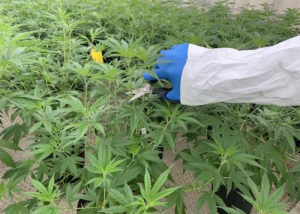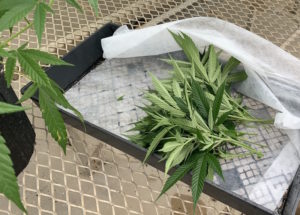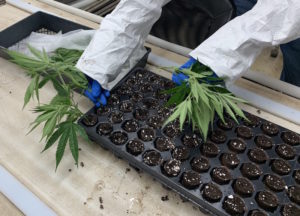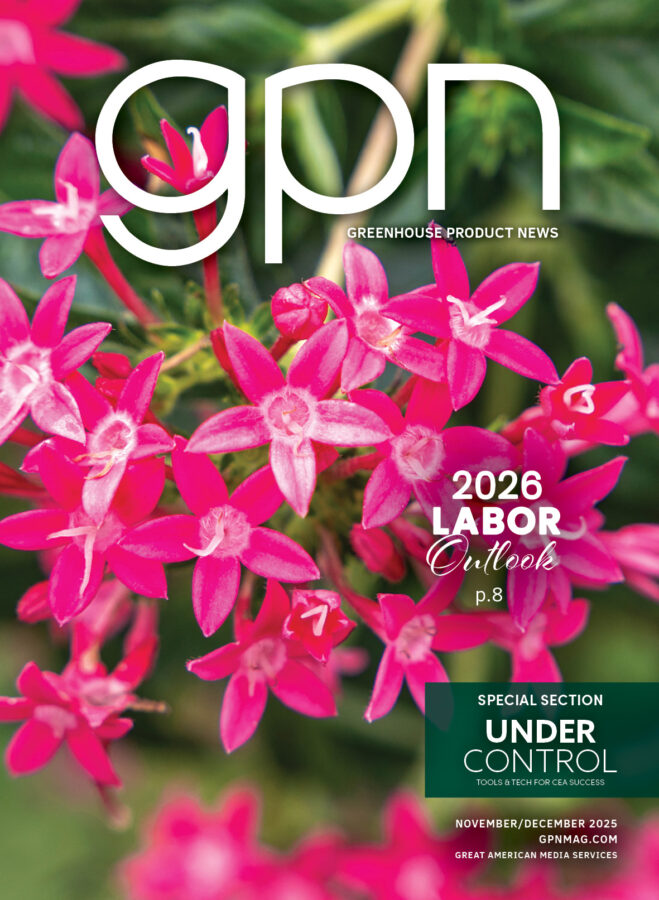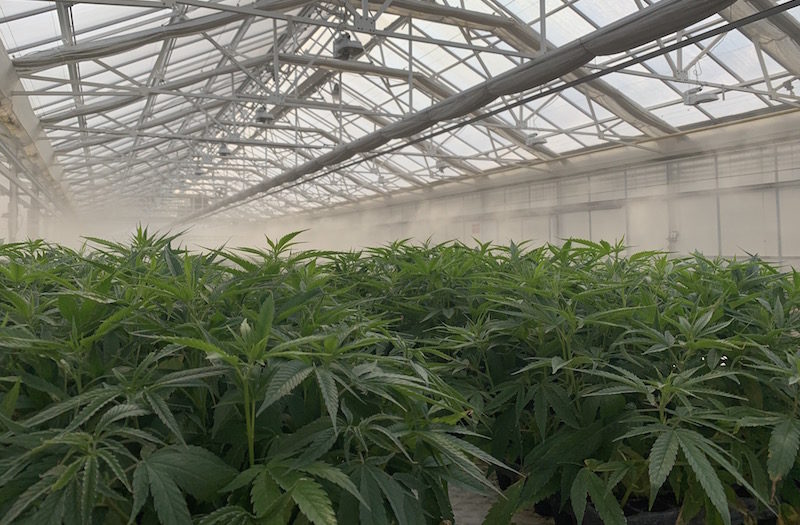
Getting Off to a Good Start
Growing a successful hemp crop is the result of many small things done well throughout the entire growing process. Being a new crop for outdoor producers, farmers face both risk and reward in producing CBD and CBG crops. Minimizing risk is important to success.
A critical first step is beginning with a healthy clone from a proven variety or strain. The steps to a healthy clone begin long before the plant is planted in the field. At Raker-Roberta’s in Litchfield, Michigan, we’re using our decades of young plant production expertise to deliver healthy plants ready for the field.
By partnering with reputable breeders who have experience in cannabis production and commercial horticulture, we take some of the risk out of field production. Certificates of analysis are available for all strains, as well as information outlining cannabinoid levels throughout the maturity season and anticipated harvest dates.
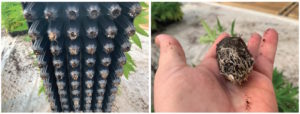
A clone originates from the mother stock. A healthy mother plant will produce healthy clones for maximum performance in the field. Our stock is grown and groomed to yield vegetative cuttings. Because hemp is not labeled for conventional pesticides, it’s critical to propagate disease-free cuttings to ensure healthy, clean clones. As part of our integrated pest management (IPM) program, beneficial biologicals are implemented to control pests before a population becomes a problem. Biofungicides are also used as a disease preventative.
Ensuring Healthy Cuttings
By having stock onsite, we’re able to schedule and manage the harvesting of cuttings to eliminate transportation problems and minimize handling stress. A specially trained crew harvests the cuttings at the ideal stage of development. After harvesting from the stock plant, cuttings are moved into a cool chamber to remove heat and regain turgidity. Resting in a cool chamber overnight, cuttings go through a sticking line to begin their transformation from a cutting into a clone. The sticking line is designed for efficiency and gets the cuttings under mist within moments of being started in the trays. Sanitation of scissors, tools and work surfaces during the sticking process ensures the cuttings enter propagation disease-free.
Hemp cuttings are taken from mother stock, stored in a cool chamber overnight and then moved to a sticking line to transform into a clone.
A special propagation zone ensures the cuttings make the transition from unrooted cuttings to rooted clones within three weeks. Computer-controlled greenhouse environments provide ideal conditions for propagation. Lighting, humidity, mist and airflow are programmed to ensure cuttings root quickly. In their second week, liners are weaned off mist and undergo a grading process. Similar to many bedding plants, the hemp clones are subjected to daylength-extension lighting to ensure the plants remain fully vegetative during the rooting process. By week 3, an extensive root system is established and the trays are ready for delivery.
Transportation and Delivery
Another key step in the transition of greenhouse grown clones to the outdoor producer is transporting the trays to the customer’s location. To make this process stress-free for the hemp liners, and for the customer, Raker-Roberta’s delivers via temperature-controlled trucks right to your location. Working off of our traditional young plant business model, we already have the logistical process in place to make this feasible.
Upon delivery, the liners should be placed in an area convenient for frequent monitoring until ready to go into the field. Hemp liners dry quickly and their moisture will need to be managed in the trays prior to transplanting.
Liners are grown in Blackmore trays designed to airprune the roots. If a farmer receives a shipment and runs into a weather delay, the liners will not girdle or become rootbound. The air-pruned liners maintain a healthy root system. Well-rooted and toned liners are better able to tolerate stressors associated with transplanting and acclimatization to outdoor conditions, creating quick establishment in the field. It’s important to minimize environmental stress on the young clones whenever possible. Similar to other field transplants, planting on an overcast or cloudy day is less stressful than a hot, sunny, dry afternoon. Liners should be well hydrated before going into the ground.
Essential Research
As the harvesting of hemp can be a labor-intensive period, our lineup of varieties provides strains for early, mid and late season harvest. By selecting multiple strains with different harvest dates, the harvest period can be scheduled for a longer window instead of having to harvest everything at once.
The hemp market is young and growing, with many opportunities and gaps to fill. An important area is understanding genetics and having knowledge of a strain’s performance in different regions of the country. To help educate hemp producers on field production and performance, our 2020 field trial will showcase genetics grown in our Midwestern location. Just as our ornamental trial gardens are used to compare and showcase performance of bedding plants, field days specific to the hemp trials will give farmers in the region an opportunity to view the plants first hand, ask questions, and make knowledgeable decisions for the 2021 planting season.
Additionally, weekly testing throughout the harvest season will provide results on cannabinoid profiles and percentages. Biomass yield records will be available after harvest.
Information gained through firsthand experience and regional trial data will help producers become more familiar with hemp and useful in making decisions for the following growing season.








